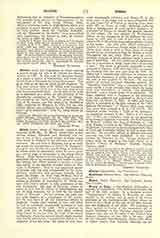

Aeneas of Gaza, a Neo-Platonic philosopher, a convert to Christianity, who flourished towards the end of the fifth century. In a dialogue entitled “Theophrastus” he alludes to Hierocles (of Alexandria) as his teacher, and in some of his letters mentions as his contemporaries writers whom we know to have lived at the end of the fifth century and the beginning of the sixth. His testimony is often quoted in favor of the miraculous gift of speech conferred on the Christian martyr” whose tongues were cut out by order of the Vandal king Huneric (Baronius, ad ann. 484, n. 91 sqq). Like all the Christian Neo-Platonists, Aenea.s held Plato in higher esteem than Aristotle, although his acquaintance with Plato’s doctrine was acquired through traditional teaching and the study of apocryphal Platonic writings, and not—to any great extent, at least—through the study of the genuine “Dialogues.” Like Synesius, Nemesius, and others, he found in Neo-Platonism the philosophical system which best accorded with Christian revelation. But, unlike Synesius and Nemesius, he rejected some of the most characteristic doctrines of the Neo-Platonists as being inconsistent with Christian dogma. For instance, he rejected the doctrine of preexistence (according to which the soul of man existed before its union with body), arguing that the soul before its union with the body would have been “idle,” incapable of exercising any of its faculties (Migne, P.G., LXXXV, 947). Similarly, he rejected the doctrine of the eternal duration of the world, on the ground that the world is corporeal, and, although the best possible “mechanism,” contains in itself the elements of dissolution (op. cit. 958 sqq). Again, he taught that “man’s body is composed of matter and form,” and that while the matter perishes the “form” of the body retains the power of resuscitating the “matter” on the last day (op. cit., 982).
WILLIAM TURNER

